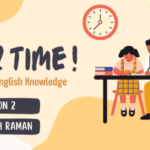
Study Reveals School Children Have More Homework Load
Primary school children have a homework load 3X the amount recommended by the National Education Association (NEA), according to a new study by researchers from Brown University School of Medicine, Children’s National Health System, Brandeis University, Rhode Island College, and the New England Center for Pediatric Psychology, with outreach provided by Good Parent Foundation.
Findings include:
- Conflicts regarding homework occurred at a rate up to 200% greater in families with parents lacking a college degree.
- Kindergartners average 25 minutes on homework; the NEA has not endorsed homework for Kindergartners.
- First graders have up to 3X the NEA recommended homework load, while second graders have a figure 1.5X greater.
The researchers determined Relative Homework Load (RHL) by adjusting the amount of time spent on homework to age and grade.
That data was then compared to the NEA recommendations of 10 minutes per grade level in school to determine RHL. The NEA based these recommendations on prior evidence that homework at these levels produced the most desired academic results. Beyond these levels, there were minimal gains, in many cases a decrement in learning.
[ Constructive Education Framework for Students in India ]
The study, published August 12, 2015 in American Journal of Family Therapy, was conducted among 1173 English- and Spanish-speaking parents of children in grades K-12.
In the study and its sequential book, The Learning Habit (Penguin Random House), researchers recommend reformation of the American homework system to make it culturally free, academically relevant, and family friendly.
Says the study’s lead researcher, Robert Pressman, “The levels of family stress and tension found in this study fall into ranges that could lead to detrimental physical and mental health. The Kindergarten homework load was identical to that of first and second graders. In that period when children are focused on early stages of socialization and finessing motor skills, an overload of homework will likely interfere with a Kindergartener’s ability to play and participate in extra-curricular activities.”
“The study raises the question of inadvertent educational discrimination against families who may be disadvantaged because the parents are: not college educated; non-English speaking; or unavailable to assist their child at homework time,” reported Stephanie Donaldson-Pressman, lead author of The Learning Habit.
Good Parent Foundation is Rhode-Island based organization that provides free materials to educators and families.













